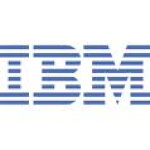- Industry: Computer
- Number of terms: 98482
- Number of blossaries: 0
- Company Profile:
Sometimes referred to as “Big Blue” IBM is a multinational corporation headquartered in Armonk, New York. It manufactures computer hardware and software and provides information technology and services.
(1) A hierarchical sequence of numbers that uniquely identifies an object.<br />(2) An identifier, which is usually a string of integers, that uniquely identifies a particular object within a distributed system.<br />(3) An ISO-defined format for identifying elements within an OSI network. An object ID consists of a string of integers. The integers in the string can identify a particular standards body, an enterprise, or the type or value of an object. An object ID is intended to be a universal identifier of an object. Examples of values that are specified in object ID format are abstract syntaxes, application context names, and application process titles.<br />(4) The unique 4-byte value or identifier that is assigned to a data model device. Object IDs can be used in SOAP commands, for quick searching in the data model or debugging.
Industry:Software
(1) A software program or a computer that provides services to other software programs or other computers. <br />(2) In WebSphere MQ, a queue manager that provides queue services to client applications running on a remote workstation.<br />(3) A definition that identifies where an application will be tested or published.<br />(4) The target of a request from a remote requester. In a DB2 database system, the server function is provided by the distributed data facility, which is used to access a DB2 database from remote applications.
Industry:Software
(1) A Java Client Application using a Gateway network protocol to connect to the Gateway daemon. See also local mode.<br />(2) A J2EE resource adapter that has been configured with a ConnectionURL starting tcp://, http://, or ssl://. Such resource adapters communicate with the Gateway daemon.
Industry:Software
(1) A software program or computer that requests services from a server. <br />(2) A runtime component that provides access to queuing services on a server for local user applications. The queues used by the applications reside on the server.<br />(3) A classifier that requests a service from another classifier.
Industry:Software
(1) A software program that uses a database manager to provide database services to other software programs or computers.<br />(2) The server on which the database application and database are installed.<br />(3) A computer that is dedicated to running a database manager to provide database services to other software programs or computers. See also data server.
Industry:Software
(1) A join method in which a column that is not common to all of the tables being joined becomes part of the resultant table.<br />(2) The result of a join operation that includes the matched rows of both tables that are being joined and preserves some or all of the unmatched rows of the tables that are being joined. See also inner join, join.
Industry:Software
(1) A solid or patterned line of any weight (line width) that extends horizontally across a row or page, or vertically down a column or page.<br />(2) A set of conditional statements that enable computer systems to identify relationships and execute automated responses accordingly.<br />(3) A condition that must be satisfied when performing a business activity.<br />(4) A list of conditions and actions that are triggered when certain conditions are met. Conditions include attributes about an object (file name, type or extension, dates, owner, and groups), the requesting client, and the container name associated with the object. See also file-placement rule.
Industry:Software
(1) A key sequence used to shift operations between different applications or between different functions of an application.<br />(2) To jump from a host session to an application on a workstation, or from the workstation to the host session.
Industry:Software
(1) A special character such as an asterisk (*) or a question mark (?) that can be used to represent one or more characters. Any character or set of characters can replace the wildcard character.<br />(2) A character that is used to represent optional characters at the front, middle, or end of a search term. See also masking character.
Industry:Software
(1) A key that is constrained so that no two of its values are equal. See also constraint, primary key, foreign key.<br />(2) A field or set of fields in a database file that must be unique, ascending, and cannot contain a null value. A unique key can become a parent key.
Industry:Software
